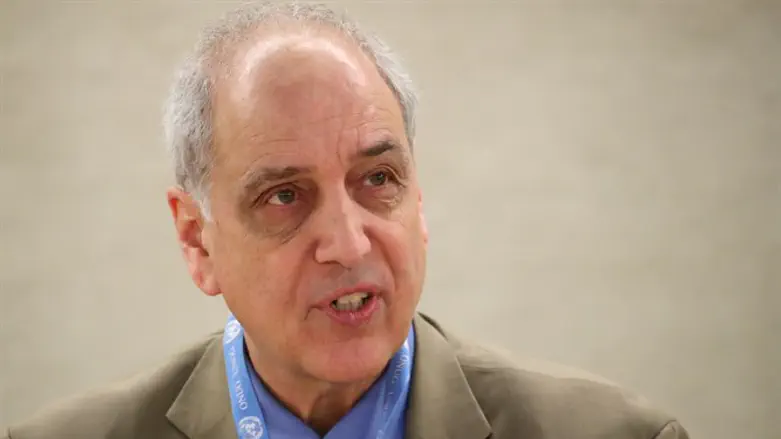
The UN independent expert on human rights in the Palestinian territories on Wednesday called for an international ban on all products made in “Israeli settlements”, The Associated Press reported.
The expert, Professor Michael Lynk, told the General Assembly’s human rights committee that the international community should also issue “a clarion call to the United Nations” to complete and release a database “on businesses engaged in activities related to the illegal settlements.”
Israel’s Foreign Ministry declined to comment on Lynk’s statement.
Lynk said the international community has a responsibility and a legal obligation to compel Israel to completely end its “occupation” and remove barriers to self-determination for the Palestinians.
He pointed to the severe humanitarian crisis in Gaza, which he called “a human-made catastrophe” and “an injustice that should be near the top of the world’s agenda to end.” He said the economic situation there “continues to move from dire to acute to unimaginable,” with over half of Gaza’s population “food insecure,” the unemployment rate over 50%, and 70% of Gazans younger than 30 without work.
Lynk said that more than 200 Palestinian Arabs have been killed and over 33,000 wounded by Israeli fire at the Gaza-Israeli border since March 2018, when Hamas began organizing the weekly “March of the Return” riots. Hamas openly admitted that many of those killed during those riots were members of the group.
“Israel has demonstrated virtually no accountability to address these actions,” Lynk charged on Wednesday.
Lynk, who is a Canadian law professor, said Israel’s “occupation” of territory the Palestinians want for their own state has been characterized by numerous and serious violations of international law, but “the international community has displayed great unwillingness to impose any meaningful accountability on Israel.”
“No occupation in the modern world,” Lnyk said, “has been conducted with the international community so alert to its many grave breaches of international law, so knowledgeable about the occupier’s obvious and well-signaled intent to annex and establish permanent sovereignty, so well-informed about the scale of suffering and dispossession endured by the protected population under occupation, and yet so unwilling to act upon the overwhelming evidence before it to employ the tangible and plentiful legal and political tools at its disposal to end the injustice.”
He called for “bold measures and the determination to enforce accountability,” starting with an international agreement on “a complete ban on the export of all products made in the illegal Israeli settlements in the world market.”
Two years ago, Lynk called for sanctions to be placed on Israel, saying that “Israel is very dependent on trade with the outside world... If there was an understanding that all of a sudden Israelis wanted to travel abroad needed to have visas, if there was an understanding that Israel wasn’t going to get preferential trading agreements with the EU, if all of a sudden, the many and multitude forms of military, economic or academic cooperation with Israel were now going to come to an end… I think you’d begin to see a sea-change in the attitude of ordinary Israelis and the Israeli government. But that has to happen. Every journey of a thousand miles begins with a single step. This might be the first step that we have to start taking.”
The UN has in the past acted to blacklist Israeli companies operating in Judea and Samaria. In 2017, the United Nations Human Rights Council (UNHRC) compiled a list of roughly 200 companies, including both Israeli and foreign firms, which were to be included in a UN blacklist for “acting contrary to international law and UN decisions”.
Earlier this year, the UNHRC warned a number of companies in Israel and abroad that they face inclusion in a UN blacklist over their operations in Israeli towns and industrial zones in Judea and Samaria, as well as eastern Jerusalem and the Golan Heights.
